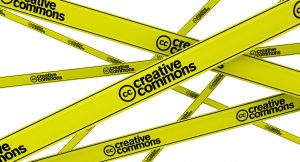On May 31, 2023, the U.S. Copyright Office (USCO) held the final session of its Spring 2023 AI Listening Session. This session was held across two panels and discussed the copyright implications of AI-generated content (AIGC) in music and sound recordings. The panelists consisted of various stakeholders in the music industry such as founders of AIGC music companies, songwriters, professors, and counsel to music and streaming companies.
Articles Posted in Copyright
In Andy Warhol Foundation for the Visual Arts v. Goldsmith, the Supreme Court Revisits the Copyright Fair Use Test
On May 18, 2023, the U.S. Supreme Court found that the purpose and character of the use of “Orange Prince” by the Andy Warhol Foundation for the Visual Arts (AWF) weighed against a finding of fair use of Lynn Goldsmith’s photograph of the artist known as Prince.
The decision’s implications go far beyond Warhol, Goldsmith and Prince, with the potential to impact stakeholders across industries, including fine art, film, software, music, publishing, fashion, and all other industries affected by copyright.
A “Far-Reaching Decision” for the Copyrightability of Computer Programs
 On April 6, 2023, the U.S. Court of Appeals for the Federal Circuit affirmed Judge Gilstrap’s ruling in SAS Institute, Inc. v. World Programming Limited, which effectively denied copyright protection to SAS Institute’s data analysis software. The decision is likely to have lasting implications for developers that seek to protect software through copyright law.
On April 6, 2023, the U.S. Court of Appeals for the Federal Circuit affirmed Judge Gilstrap’s ruling in SAS Institute, Inc. v. World Programming Limited, which effectively denied copyright protection to SAS Institute’s data analysis software. The decision is likely to have lasting implications for developers that seek to protect software through copyright law.
A New Dawn for Copyright in AI-Generated Works?
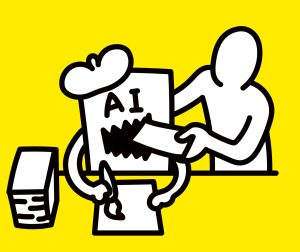 On February 21, 2023, the Copyright Office eclipsed its prior decisions in the area of AI authorship when it partially cancelled Kristina Kashtanova’s registration for a comic book titled Zarya of the Dawn. In doing so, the Office found that the AI program Kashtanova used—Midjourney—was primarily responsible for the visual output that the Office chose to exclude from Kashtanova’s registration. (Midjourney is an AI program that creates images from textual descriptions, much like OpenAI’s DALL-E.) The decision not only highlights tension between the human authorship requirements of copyright law and the means of expression that authors can use, but it also raises the question: Can AI-generated works ever be protected under U.S. copyright law?
On February 21, 2023, the Copyright Office eclipsed its prior decisions in the area of AI authorship when it partially cancelled Kristina Kashtanova’s registration for a comic book titled Zarya of the Dawn. In doing so, the Office found that the AI program Kashtanova used—Midjourney—was primarily responsible for the visual output that the Office chose to exclude from Kashtanova’s registration. (Midjourney is an AI program that creates images from textual descriptions, much like OpenAI’s DALL-E.) The decision not only highlights tension between the human authorship requirements of copyright law and the means of expression that authors can use, but it also raises the question: Can AI-generated works ever be protected under U.S. copyright law?
Avoiding the Creative Commons Photography Trap
Between February and April 2022, a professional photographer from Cologne, Germany, filed nine copyright infringement lawsuits in U.S. federal courts. What makes the cases unique is that in each one, the defendant had a Creative Commons license to use the image for commercial purposes free of charge. Knowing the potential traps associated with these licenses and how they can arise may help your company avoid being the next defendant.
The New Copyright Claims Board: Opportunities and Impediments
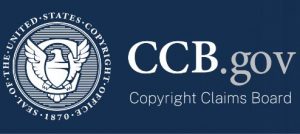 The Copyright Alternative in Small-Claims Enforcement Act (CASE Act), enacted in December 2020, established the new Copyright Claims Board (CCB) within the Copyright Office, which is intended to provide an alternative, cost-efficient, streamlined forum for copyright owners to enforce their rights without having to resort to federal court litigation, which can be lengthy and expensive. The CCB is currently scheduled to begin hearing cases by no later than June 2022. But will this forum achieve its intended goals? What are the potential pros and cons presented by the CCB process for the parties?
The Copyright Alternative in Small-Claims Enforcement Act (CASE Act), enacted in December 2020, established the new Copyright Claims Board (CCB) within the Copyright Office, which is intended to provide an alternative, cost-efficient, streamlined forum for copyright owners to enforce their rights without having to resort to federal court litigation, which can be lengthy and expensive. The CCB is currently scheduled to begin hearing cases by no later than June 2022. But will this forum achieve its intended goals? What are the potential pros and cons presented by the CCB process for the parties?
When It Comes to Copyright Applications, Honest Mistakes Can Still Hurt You
The U.S. Supreme Court’s recent decision vacating the Ninth Circuit’s ruling in Unicolors, Inc. v. H&M Hennes & Mauritz, L.P., was a win for authors who, during the copyright application process, unwittingly submit inaccurate information to the U.S. Copyright Office (e.g., because they did not understand the law, and/or were not assisted by competent copyright counsel). Nonetheless, in The Cost of Honest Mistakes: Even After Unicolors, Copyright Application Errors May Still Have Consequences, our colleagues Sam Eichner and Lori Panosyan explain why the decision does not do away with the risks associated with honest mistakes in U.S. Copyright Office filings (and why authors should take care to mitigate such risks).
NFT Platforms and the (Sort of) Return of the Record Store
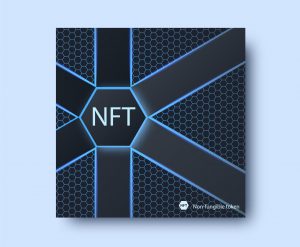 Over the past few months, non-fungible tokens (NFTs) have exploded in popularity in the worlds of visual arts, sports memorabilia, bobbleheads, and now, music. We have recently seen multiple high-profile NFT releases from artists such as the Weeknd, the White Stripes, Kings of Leon, Linkin Park’s Mike Shinoda, and Steve Aoki, kickstarting a trend as musicians reeling from over a year without touring seek new ways to engage with fans.
Over the past few months, non-fungible tokens (NFTs) have exploded in popularity in the worlds of visual arts, sports memorabilia, bobbleheads, and now, music. We have recently seen multiple high-profile NFT releases from artists such as the Weeknd, the White Stripes, Kings of Leon, Linkin Park’s Mike Shinoda, and Steve Aoki, kickstarting a trend as musicians reeling from over a year without touring seek new ways to engage with fans.
Google v. Oracle, Fair Use and the Decreasing Value of Code Over Time
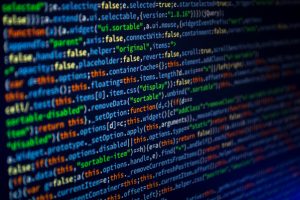 Earlier this month, in what many consider the copyright case of the decade, the Supreme Court released its much-anticipated decision in Google v. Oracle. In it, the Court ruled that Google’s copying of 11,500 lines of declaring code from Java SE for use in Google’s Android platform, was fair use. Having recently reviewed the history of the fair use defense in copyright infringement cases, we now turn to the case itself.
Earlier this month, in what many consider the copyright case of the decade, the Supreme Court released its much-anticipated decision in Google v. Oracle. In it, the Court ruled that Google’s copying of 11,500 lines of declaring code from Java SE for use in Google’s Android platform, was fair use. Having recently reviewed the history of the fair use defense in copyright infringement cases, we now turn to the case itself.
A Short History of the Fair Use Defense in the Software Industry
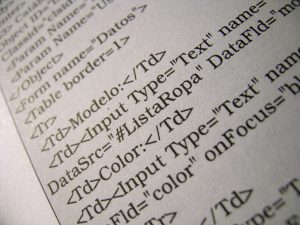 Last month, the Supreme Court released its much-anticipated decision in Google v. Oracle. The Court ruled that Google’s copying of 11,500 lines of declaring code from Java SE, for use in Google’s Android platform, was fair use.
Last month, the Supreme Court released its much-anticipated decision in Google v. Oracle. The Court ruled that Google’s copying of 11,500 lines of declaring code from Java SE, for use in Google’s Android platform, was fair use.
While we examine the Supreme Court’s decision in another post, let’s first take a look at the history of the fair use defense in the software industry.
 Internet & Social Media Law Blog
Internet & Social Media Law Blog



